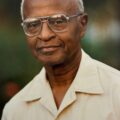In an article captioned Remembrance Day, “Gone but not forgotten” Niamh stated:
“They are gone but not forgotten. How can they be when every year so many countries Remembrance Day or Veterans Day is celebrated? When we hear a eulogy for a mother or a eulogy for a father, they are usually very personal, speaking of than person’s attributes and personalities. Remembrance Day is different because on that day we speak about the sacrifices of the collective armed forces. Words like courage, bravery and patriotism are an integral part of a remembrance oration or speech. Sometimes Veterans Day is called Armistice Day in commemoration of the ending of the First World War in November 1918. On that day we remember the poppies Flanders, a symbol of the blood shed in the trenches. Monarchs and Heads of State lay wreaths at the tombs of unknown soldiers. They are often flanked by today’s serving soldiers or by elderly veterans proudly wearing their medals. It is however, their families and friends who remember such patriots in their hearts.”
What lesson war has for us?
With no exceptions, every leader knows the sad consequences of War. They know how innocent lives are lost by young people who, propelled by patriotism and in some cases by conscription, go to war zones. The sad farewell when they leave behind their families; with the tears of their children and spouses; being away from home and yearning to get back as soon as possible; the awareness of the risks involved and that there is the possibility that they may be killed or incapacitated.
Yet, wars continue and those who authorize it will always find rational explanations and justifications for resorting to fighting and killing fellow human beings.
How illogical! How sad? These are times when international agencies work towards the promotion of peace and diplomatic persuasions remain an underutilized procedure to settle disputes.
The most experienced war Veterans have in the latter years of their lives denounced war.
Here are samples of observations:
Sir Winston Churchill: “The human tragedy reaches its climax in the fact that after all the exertions and sacrifices of hundreds of millions of people and of the victories of the righteous cause, we have still not found peace or security, and that we lie in the grip of even worse perils than those we have surmounted….”
Dwight D. Eisenhower: “When people speak to you about preventive war, you tell them to go and fight it. After my experience, I have come to hate war. War settles nothing.”
Douglas McArthur: (US Army General who commanded troops in both World War 11 and Korea): “By profession, I am a soldier and take pride in that fact. But I am prouder – definitely prouder – to be a father. A soldier destroys in order to build; the father only builds, never destroys. The one has the potentiality of death; the other embodies creation and life. And while the hordes of death are mighty, the battalions of life are mightier still. It is my hope that my son, when I am gone, will remember me not from the battle but in the home repeating with him our simple daily prayer, “Our Father Who Art in Heaven.”
THE OPPOSITE OF WAR IS PEACE AND WHAT IS NEEDED IS THE PROMOTION OF PEACE IN HOMES, SCHOOLS, NEIGHBOURHOODS, COMMUNITIES AND AT NATIONAL AND INTERNATIONAL LEVELS.
Too often, the desire to exhibit power and display superiority lead many persons to run away from the pathway of conciliation and finding practical solutions in a spirit of give and take.
Such are the situations which destroy peace and replace it with aggression and hostility.
As we reflect on the contributions of the many that lost their lives in wars, we pay tribute to their bravery, patriotism, commitment and sacrifice.
It is my view that the sad lessons of war should be a powerful and effective reason for avoiding war and promoting peace and understanding.






